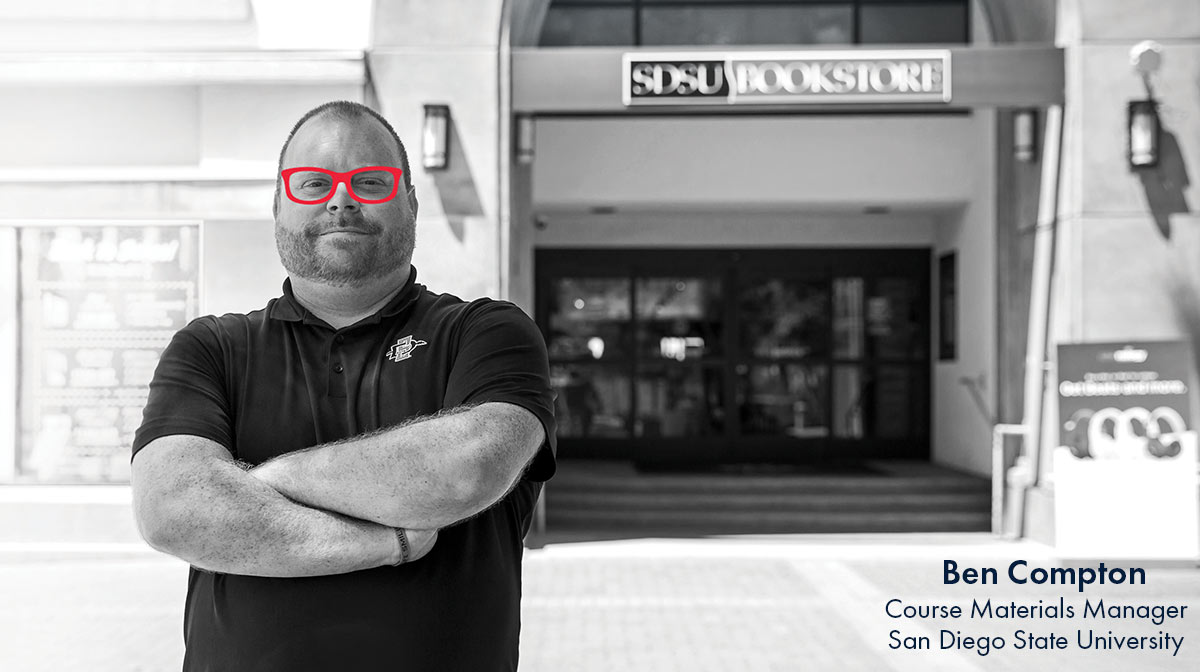San Diego State University (SDSU) has a vision for a digital-first campus, and their Inclusive Access program (dubbed “Immediate Access”) is helping pave the way. Conversations around the program took root in 2013, with a two-course pilot launching in spring 2016. RedShelf came on board in fall 2016 as a digital content distributor, and by the end of 2019, SDSU had scaled the program to serve 232 courses with more than 42,000 participating seats.
As the Course Materials Manager-Buying Group at Aztec Shops, Ben Compton has played a strong hand in growing Immediate Access on campus and has learned some invaluable lessons along the way. Read on for his top three tips for scaling your institution's digital efforts.
- Don’t grow too big too quickly. SDSU ran a two-course pilot over two terms to get an initial feel for the program. Once ready to expand, they targeted professors who fit the program as well as high-usage materials for the greatest impact. By strategically and methodically scaling the program, they were able to measure their success and build trust with faculty and students.
- Find a distribution partner that aligns with your mission. When it’s time to scale the program, you not only need a partner that can provide an automated solution, you also need someone that passionately cares about their customers. At their core, SDSU relentlessly views their programs through the student perspective. When it came time to scale Immediate Access with a digital content distributor, Aztec Shops chose to partner with RedShelf. These shared student-centric and customer service values reinforced their partnership and the mission as a group.
- Remember that over-communication is impossible. Early on, SDSU realized the value of clear communication for a successful launch to faculty and students. Efforts ranged from distributing information on Immediate Access through the Cashier’s Office to providing faculty with messaging for the LMS and syllabi. Providing an abundance of clear and consistent communication to both faculty and students ahead of time makes for smoother implementation in the long-run.
